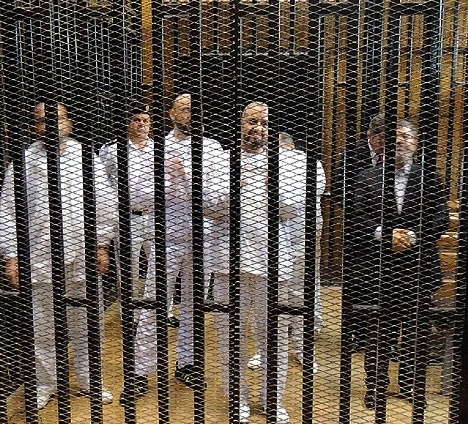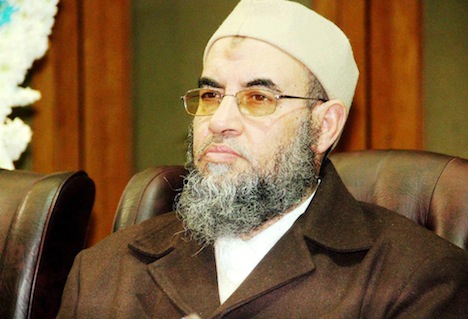2. Egypt parliamentary and presidential elections, spring and summer 2014.![]()
Egypt will attempt to hit the reset button once again in 2014, beginning with a constitutional referendum on January 14 and 15. If the referendum passes, the new constitutional reforms provide that acting president Adly Mansour must hold either a presidential or parliamentary elections within three months, with the other election to follow within another three months.
But after the July 2013 coup that ousted Mohammed Morsi, Egypt’s first elected president, there’s no assurance that the elections will be a fair reflection of the will of the Egyptian electorate. After a brutal crackdown on pro-Morsi protestors reminiscent of the worst abuses of the authoritarian regime of former Egyptian president Hosni Mubarak, the military interim government branded the Muslim Brotherhood a terrorist organization, Morsi (pictured above) remains jailed pending charges for murder and other crimes, and other top Muslim Brotherhood officials are also imprisoned.
There’s no real assurance that the pro-Morsi Freedom and Justice Party (حزب الحرية والعدالة), the political wing of the Muslim Brotherhood, will even be permitted to participate in the elections. It could also mean that Islamist voters of all shades turn to the more conservative, Salafist Al-Nour Party (حزب النور, Arabic for ‘Party of the Light’) or to other more radical Islamist groups that have, since July 2013, worked in tandem with the current military regime. Other secular groups, like the National Salvation Front (جبهة الإنقاذ الوطني) of Mohamed ElBaradei, the former director general of the International Atomic Energy Agency, who briefly served as the interim vice president of the military government, could win seats, but secular liberals failed in the two previous parliamentary elections in 2011 and 2012 to make a breakthrough. The Tamarod (تـمـرد ) movement, which powered significant protests against Morsi in June 2013 and which supports the current regime, could also emerge as a more permanent player.
But the most likely result could be the coronation of Egypt’s powerful army chief Abdel-Fattah El-Sisi as the country’s new president, who ironically came to power when Morsi himself appointed him to the role in August 2012. Hamdeen Sabahi, a nationalist liberal who placed third in the May 2012 presidential election, is expected to wage a strong campaign as well. Since the February 2011 Arab Spring revolts that brought down Mubarak’s regime, political tumult has complicated the economic outlook for Egypt, where a youthful population continues to grapple with too few employment opportunities.



